Every year, there’s a brief window when optimism meets anxiety—tax season. For small business owners, it's not just about running numbers but protecting the business itself. There’s no CFO to lean on, no financial department with analysts and spreadsheets at the ready. It’s the business owner, their receipts, their late-night QuickBooks sessions, and the daunting reality of staying both profitable and compliant. But the good news? Tax preparation doesn’t have to feel like a yearly ambush. Done smartly, it becomes part of your operational rhythm, not a disruptive event.
Keep the Books Boring, Not the Business
Financial clarity isn't glamorous, but it’s the difference between a growing business and one that slowly bleeds cash. The most efficient small business owners aren’t obsessively crunching numbers every night—they’ve just set up systems that do the heavy lifting. Bookkeeping software that syncs with bank accounts, rules for categorizing expenses, and even something as simple as dedicating 15 minutes each Friday to reconciling transactions makes April far less painful. It also avoids the chaos of hunting for stray invoices or trying to explain missing vendor payments while under audit pressure. Boring systems mean exciting growth elsewhere.
Let Machines Handle the Mess Before It Hits
Tax season has a way of turning desks into disaster zones, stacked high with paper receipts, mileage logs, and financial forms that seem to multiply overnight. Digging through crumpled statements or manually inputting figures into spreadsheets can eat up hours better spent running the business. For a solution, here’s a good one: rather than typing each line item by hand, OCR tools now scan, extract, and sort information from physical documents with near-perfect accuracy. By digitizing your records early, you reduce the risk of errors, stay ahead of deadlines, and make tax prep feel like a routine instead of a crisis.
Separate Everything—Bank Accounts, Emotions, and Assumptions
Personal and business finances should never share the same sandbox. Co-mingling accounts is the fastest way to lose deductions and raise red flags. But it’s more than just having separate debit cards—it’s also about mental clarity. A clearly divided financial life helps with more than taxes; it enables better decision-making all year. When assumptions about cash flow are based on a blend of personal and business income, the reality gets murky. Emotional spending—justifying purchases as “for the business” when they’re not—creeps in quietly. Smart tax prep means drawing firm, clear lines before they become blurred and costly.
Deductions Aren’t Free Money, They’re Strategy Tools
There’s a popular belief that deductions are some kind of loophole party—take them all and worry later. That’s a great way to get penalized. The truth is deductions are a strategic tool, not a cheat code. They should reflect the real structure of the business and align with its mission. Taking a home office deduction? It better be a real, exclusive space used only for work. Writing off meals? Be ready to prove they were for business development, not lunch breaks with friends. Smart owners treat deductions like chess moves: planned, calculated, and in service of a broader objective.
Talk to a Tax Professional Before You Think You Need One
Waiting until March to hire an accountant is like calling a plumber after the basement floods. Tax professionals are most useful when they’re part of the planning conversation, not just the cleanup. They help with decisions like choosing between LLC and S-Corp, or deciding how to pay yourself in a tax-advantaged way. They also stay current on changing legislation and can help you react proactively, not defensively. Even if the business is small, one well-timed meeting in July can save thousands by the following April. That’s not an expense—it’s risk management.
Audits Aren’t the End of the World—If You’re Ready for Them
No one wants an audit, but fearing it won’t stop it from happening. What will make it manageable is solid documentation and confidence in your reporting. Being audit-ready isn’t about being perfect; it’s about being organized. You should be able to explain every deduction, account for every transaction, and present a consistent picture of how your business operates. That makes audits shorter, less invasive, and far less expensive. Think of audit preparation as a fire drill—rarely used, but essential to rehearse.
When tax prep is treated as a postscript to entrepreneurship, it becomes a burden. But when it's woven into the fabric of business operations—part of budgeting, spending, hiring, and planning—it becomes a natural checkpoint. It forces owners to assess what’s working, where money’s going, and whether they’re building something sustainable. That mindset is what separates reactive business owners from adaptive ones. Smart tax prep isn’t just about compliance—it’s about clarity, resilience, and treating the business like it deserves to last.
Discover the benefits of joining the Finger Lakes Area Chamber of Commerce and connect with a vibrant network of local and regional businesses to elevate your brand and opportunities!
Additional Hot Deals available from Adobe Acrobat
How Digital Tools Are Quietly Revolutionizing Trade Show Marketing
Elevating Your Brand’s Social Media Without Going Broke
Cash Flow Management Tactics for Long-Term Business Stability
The Power of Seeing Data: How Finger Lakes Businesses Can Thrive Through Visualization
This Hot Deal is promoted by Finger Lakes Area Chamber of Commerce.


